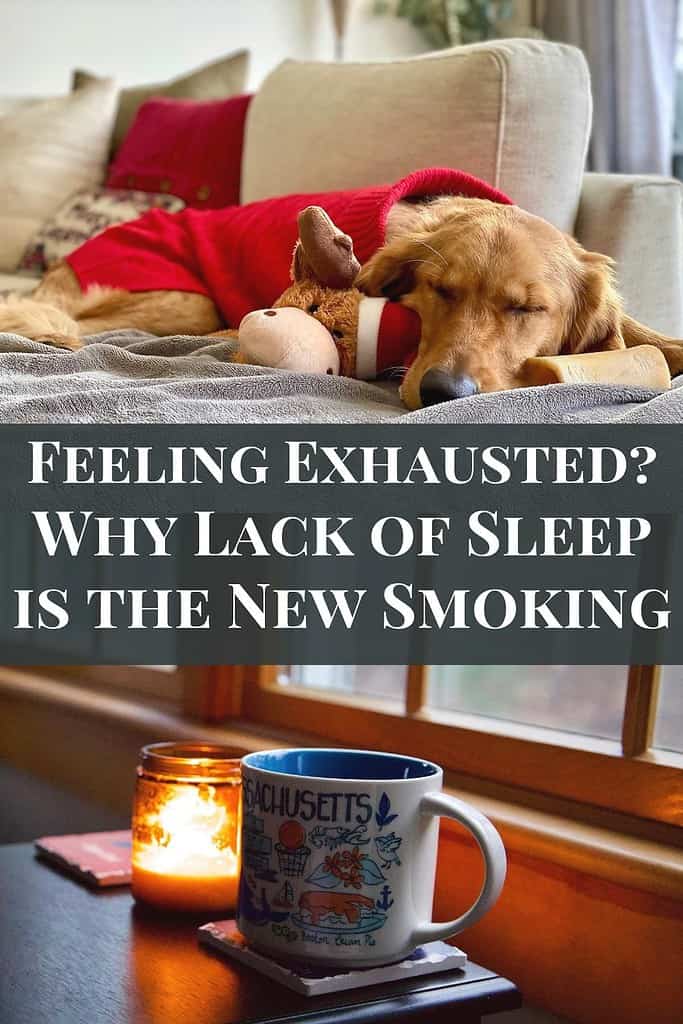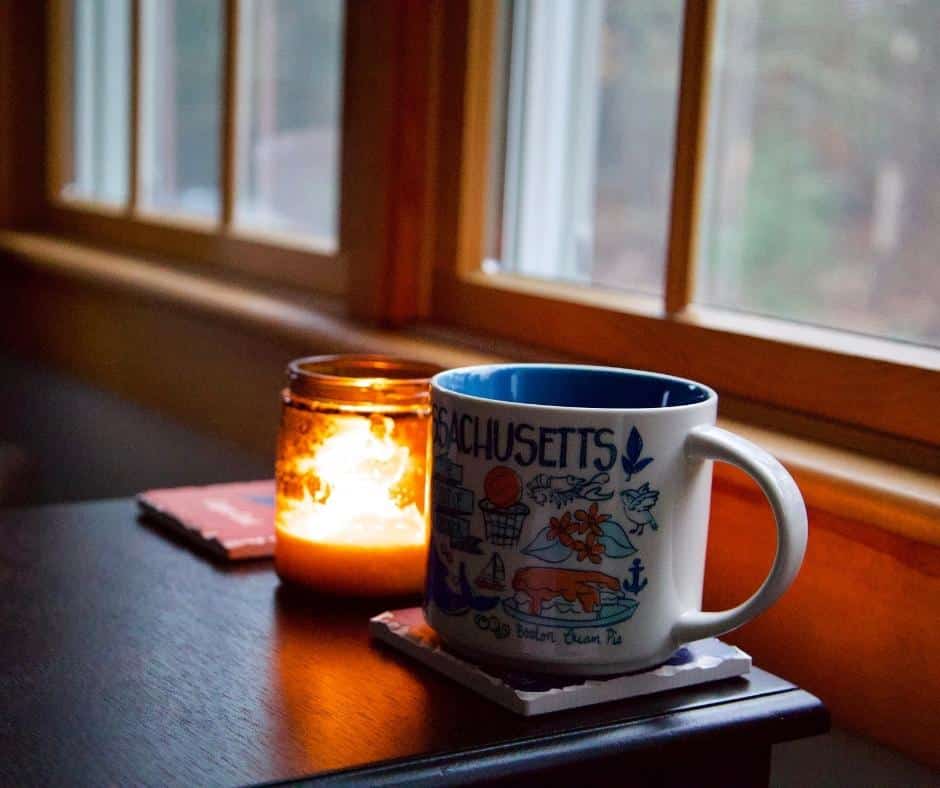Feeling Exhausted? Why Lack of Sleep is the New Smoking
Feeling exhausted? Experts are calling lack of sleep the new smoking. All of us at some point will go through a night, or several nights, where we find it difficult to sleep. Research shows a lack of sleep can be both physically and mentally taxing, and some say it is as unhealthy as smoking. Here is what the experts say is happening and why lack of sleep is considered the new smoking.

In This article
Sleep is critical for overall health. Oftentimes a caregiver will develop unhealthy sleep patterns due to the very nature of being a caregiver.
A caregiver will busy themselves throughout the day with work, household chores, and also care for their loved one with Parkinson’s disease – or any other chronic disease.
They will prepare dinner when evening comes, tidy up the house, and help get their loved ones to bed. Once the household is quiet, they will stay up late finishing any outstanding work, and then maybe find 5-10 minutes to relax before collapsing into bed themselves.
For some caregivers it will not end there. For some there will be multiple interruptions during the night, which will make getting a good night sleep nearly impossible.
Lack of Sleep – did you know?
We spend one-third of our lives sleeping, and yet roughly 35% of US adults characterize their sleep as either “fair” or “poor”.(1)
This post is not about making you feel guilty for lack of sleep but rather to increase your awareness and provide you with tools to take action.
This post is not about making you feel guilty for lack of sleep but rather to increase your awareness and provide you with tools to take action.
Sleep is not something to ignore, and every effort should be made to make sleep a priority. Toward the end of this post I will offer suggestions on how you can help yourself better find the quality sleep you need.
While you are sleeping there are a significant number of things happening to repair and restore your body. Here are a few examples.
what happens when you sleep:
Human growth hormone (HCG) stimulates cells to repair the body while you sleep. HCG is a substance that is produced in the pituitary gland at the base of our brain, and it gets released during the deep stages of sleep.(2)
During sleep fat gets broken down for tissue repair.(3)
Protein gets synthesized while you sleep. This is an important function in every cell of the body. Proteins are responsible for maintaining cell structure, transport, cellular communication, chemical reactions, and protection from harmful viruses and bacteria.(4)
During sleep your immune system is able to rest, recover, and rebalance.(5) When you do not get enough sleep it puts your body at risk for systemic inflammation, which makes you more vulnerable to infection and disease.
Scientists believe one function of sleep is to act as an antioxidant for the body and the brain. Clearing out free radicals that can damage cells and cause aging and disease.(6)
Sleep is so important that some scientists are now calling sleep disruption and continuous lack of sleep as a “probable” carcinogen.(7) So lack of sleep really could be the new smoking!
Sleep is so important that scientists are now calling continuous lack of sleep as a probable carcinogen. Lack of sleep is the new smoking.
Feeling exhausted during the day and then lacking quality sleep at night is no joking matter. The health risks are real.

Here is a list of risk factors you may be up against if you do not get enough sleep:
The potential risks of lack of sleep
- Cancer – there is an increased cancer risk and increased mortality for adults sleeping on average of less than 6.5 hours per night.(8)
- Obesity and diabetes – lack of sleep contributes to obesity and type 2 diabetes, and it changes the way your body regulates insulin.(9)
- Increased appetite – sleep regulates appetite so if you are sleep deprived, you may experience an increase in hunger and cravings.(10)
- Depression – sleep is a mood regulator. Lack of sleep can enhance moodiness and make you more vulnerable to depression.(11)
- Dementia and Alzheimer’s – lack of sleep increases your risk of dementia and Alzheimer’s disease.(12)
So how much sleep should you be getting on a regular basis? According to The National Sleep Foundation, the amount of sleep you should get each day varies according to age.
Here are the guidelines.
Sleep guidelines from the national sleep foundation
- Newborn (0-3 months): 14-17 hrs p/day
- Infants (4-11 months): 12-15 hrs p/day
- Toddlers (1-2 years): 11-14 hrs p/day
- Preschoolers (3-5 years): 10-13 hrs p/day
- School age Children (6-13 years): 9-11 hrs p/day
- Teenagers (14-17 years): 8-10 hrs p/day
- Younger Adults (18-25): 7-9 hrs p/day
- Adults (26-64): 7-9 hrs p/day
- Older Adults (65+): 7-8 hrs p/day
Now that you know how important sleep is for your health, I encourage you to make sleep a strong priority. I understand sleep can be challenging for caregivers, however taking even just a few small positive steps is better than nothing.
Here are suggestions to improve your sleep and to begin working on a strong sleep hygiene program.
How to start a strong sleep hygiene program
Consistency
Work on developing a consistent schedule. Aim to go to bed and get up at the same time each day, and this includes weekends. Playing catch-up on the weekends does not work, as you do not reap the same health benefits.
regular physical activity
Physical activity will help you fall asleep faster, and will better your quality of sleep. However, the timing of when you exercise might matter. For some people, exercising in the evening may disrupt their quality of sleep.
When you exercise you release endorphins, and your core body temperature rises. For some, this could keep them up at night. So pay attention and determine what works best for your body.
relaxation methods
Consider taking up yoga, meditation, or other relaxation methods for improved quality of sleep.
There are plenty of YouTube videos that will teach and guide you in these areas. It doesn’t have to be a formal class, and it doesn’t have to be expensive.

Bedtime routine
Work on developing a relaxing bedtime routine for yourself at least an hour before bed. This could include lighting a candle and reading a a book, or taking a warm shower or bath. Perhaps doing some light stretches, or sipping on a warm cup of herbal tea. Anything that you feel will calm and relax you.
NOTE: For quality sleep it is important to turn off your gadgets at least 1 hour before going to bed. It is even better if you do this 2-3 hours before bed. No gadgets means no television, mobile phones, computers, iPads etc. The light from these devices prevents your body from producing the melatonin it needs to get quality sleep. This should be a very hard line!
no caffeine or alcohol
Caffeine and alcohol are stimulants that will disrupt your sleep. Many people believe alcohol to be a suppressant but it in fact does just the opposite.
limit naps
Napping will throw off your circadian rhythm and sleep/wake cycle. Keep napping to a minimum as best you can.
no late night snacking
Eating within an hour or so before going to sleep can disrupt your sleep cycle. Your body will work on digesting the food you just ate versus resting and recovering.
NOTE: Some people find they sleep better if they have a small snack shortly before bed. People with blood sugar issues may fall into this category. Listen to your body and pay attention to its needs.
Check out some of my simple nourishing recipes HERE, to get you started.
dark environment
Our circadian rhythm, which regulates the sleep/wake cycle, is very sensitive to light, so it is important to be in a dark environment when we sleep. Even small amounts of light can be disruptive.
Pay attention to light from a clock or cable tv box, and cover them if possible. Sleep with the shades or curtains down. Better yet, get yourself some black out curtains if you can!
cool temperature
Keeping the bedroom cool will help your quality of sleep. We get the most restorative sleep when we are in REM sleep, and heat is known to be a big disrupter of REM sleep. So aim to cool down your room as much as possible. Sleep experts say 60-67 degrees Fahrenheit works best.(13)
no sleeping pills
Sleeping pills are not the answer because they do not get to the root of the problem. Sleeping pills prevent you from moving through all of the stages of sleep, and they will not give you restorative sleep.
Learning, conditioning, and training your body to maintain an excellent sleep hygiene program is important, especially as a caregiver. Developing quality sleep habits take time and discipline, but as a caregiver you cannot take good care of others unless you take good care of yourself.
As a caregiver you cannot take good care of others unless you take good care of yourself.
Was this article helpful?
If you found this article helpful I would love if you let me know in the comments below. And please consider sharing this article with someone whom you think it might benefit.
FREE EBOOK!
The Caregiver Wellness Guide is a FREE ebook with helpful tips, inspiration, and nourishing recipes to help you stay healthy as a caregiver!
Comments:
References
- https://www.sleepfoundation.org/sleep-deprivation
- https://pubmed.ncbi.nlm.nih.gov/5675428/
- https://www.ncbi.nlm.nih.gov/pmc/articles/PMC3316154/
- https://study.com/academy/lesson/protein-synthesis-definition-purpose.html
- https://www.ncbi.nlm.nih.gov/pmc/articles/PMC4666828/
- https://journals.plos.org/plosbiology/article?id=10.1371/journal.pbio.2005206#sec009
- https://www.ncbi.nlm.nih.gov/pmc/articles/PMC4767658/
- https://pubmed.ncbi.nlm.nih.gov/20469800/
- https://pubmed.ncbi.nlm.nih.gov/18929315/
- https://pubmed.ncbi.nlm.nih.gov/15583226/
- https://pubmed.ncbi.nlm.nih.gov/26085289/
- https://www.ncbi.nlm.nih.gov/pmc/articles/PMC1876757/
- https://health.clevelandclinic.org/what-is-the-ideal-sleeping-temperature-for-my-bedroom/
